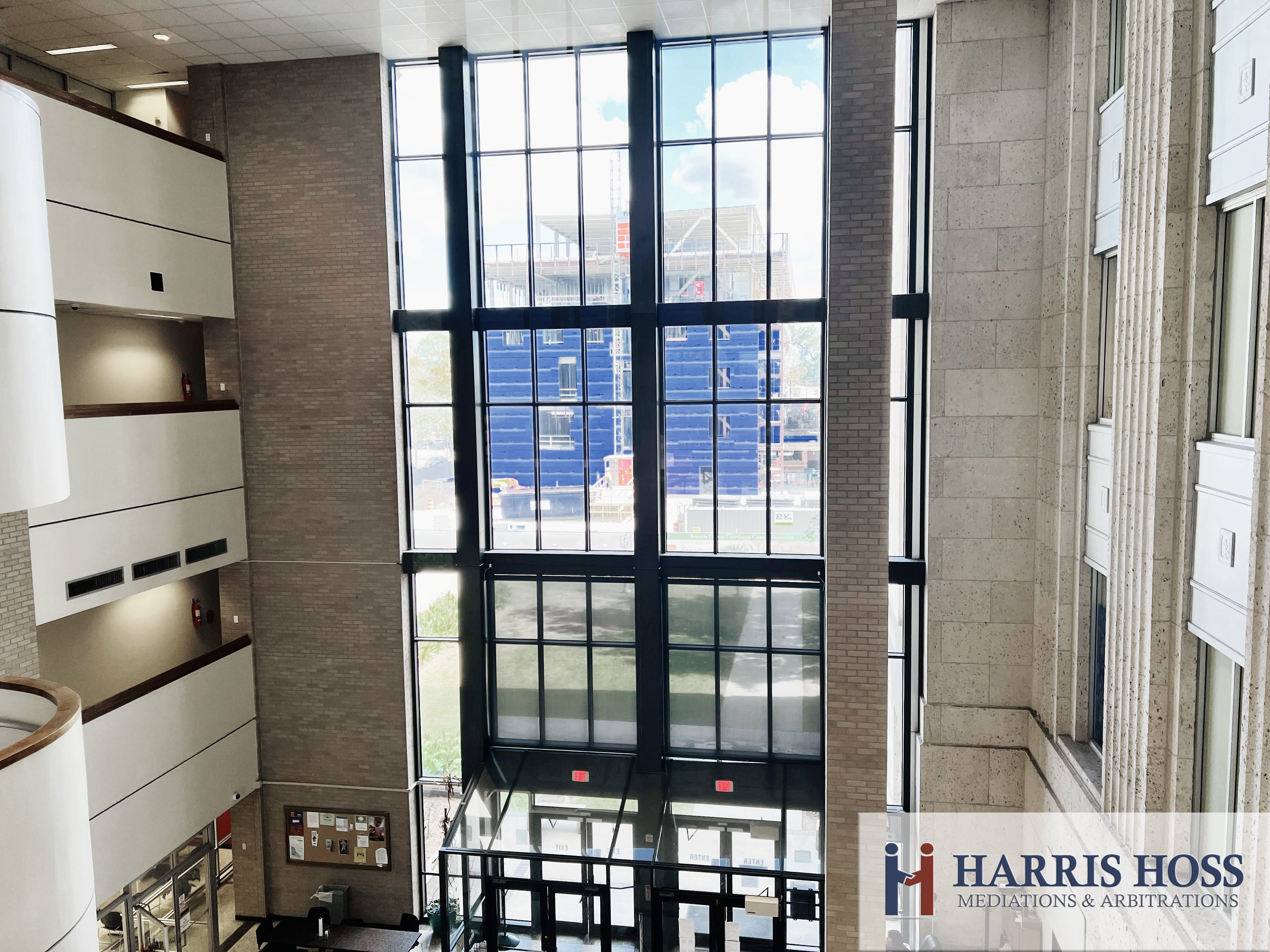
Constructing the Future from the Past in the Present
Recently, while I was standing on the third-floor walkway in the Brazoria County Courthouse that connects what is sometimes called the “old courthouse” (built in 1940) to what is the “newer courthouse” (an expansion added in 1979), I snapped this image with my phone.
In this image, we can see on one side the stones and artwork that adorned the exterior of the “old courthouse” and on the other side, the walkways and brick used to build the “newer courthouse.” And in the center – through the windows – we see a blue box under construction – a future new courthouse.
Yesterday, I found myself looking at this image and appreciating its symbolism both literally and metaphorically.
Through mediation, I help parties engage in an ongoing negotiation to resolve their present conflict through a process that relegates a great deal of control to them as to how their respective futures could be constructed.
Just as we see in this image, in mediation the past is clearly in view and connected to the present. That past is what brings the parties to a place like this at which their future hinges on what could be decided either by them or a stranger (a judge or jury).
In the present, the decisions parties make in mediation open windows through which they can see a path to the future. A future, perhaps, under construction, perhaps out of focus, and seen only through their mind’s eye initially. A future that they aim to construct through the planning and preparation they commit to undertake in the mediation process. A future that, as the mediation session wears on, is under construction and starts to come into sharper focus. And with a clearer view, a future that each begins to realize is not only possible, is one that can be firmly grounded on the parties’ terms.
That future is built frequently by parties using the simple tool of mediation.
In a way, this image captures perfectly the literal and metaphorical construction zones in which I find myself standing often as a mediator.
(For a brief history of the Brazoria County courthouses, visit the Brazoria County Historical Museum website or read this summary.)
Felicia Harris Hoss
is an attorney-mediator, arbitrator, and early dispute resolution (EDR) neutral, with almost 25 years of legal experience. Through the years, Felicia has helped parties resolve civil and commercial disputes both inside and outside of the courtroom in a wide range of industries involving a broad spectrum of claims. Felicia is available to assist parties and their counsel through online, hybrid, and in-person mediations and arbitrations (ad hoc and administered).




